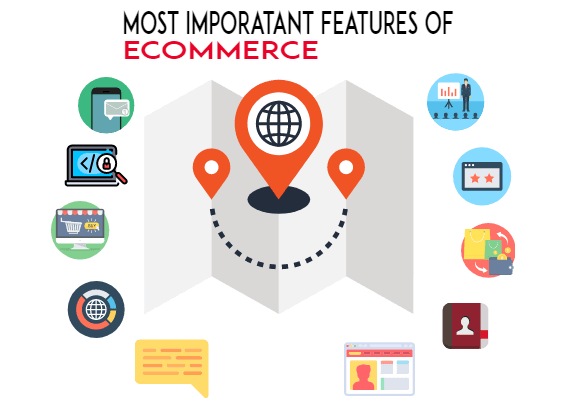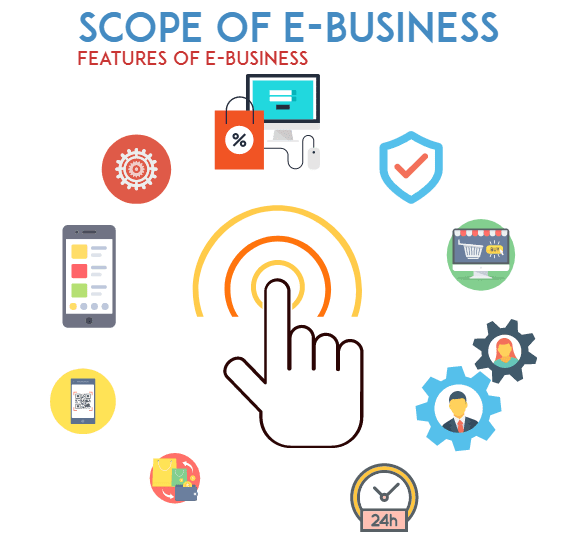Management is linked to information by People are always looking for new ways to get information in order to make decisions, and the internet is a great tool for this.
With the rise of social media and digital platforms like blogs, it’s easier than ever before to find the latest news and trends.
However, whether this information is good or bad can vary depending on who you ask. Sometimes what seems like a positive event might turn out to be negative in hindsight, while something that seemed like a negative event at first could actually turn into an opportunity later on.
In this article, discover how management can be linked to information by the management.
What is an information system? What does it do?

An information system is a software that facilitates communication and collaboration among people who work together inside an enterprise (like a small business).
An information system provides mechanisms to input data into databases, monitor changes made to those databases, store database content, retrieve stored data, perform complex searches against stored data, generate reports based on queries against stored data, and analyze the data retrieved from storage.
In addition, information systems may include tools like project management, issue tracking, workflow management, email management, calendaring, human resource management, document management, video streaming, Web conferencing, and others.
Where is an information system used?
An information system can help automate many aspects of an organization’s daily operations.
These include but are not limited to: billing, payroll processing, order entry, inventory control, shipping, customer relationship management, human resource management, supplier negotiations, contract management, and marketing functions such as advertising, product promotion, public relations, and trade shows.
All of these activities involve some form of interaction between people, and typically require communication, coordination, and sharing of information.
Benefits of Managing information effectively
1) Greater productivity – Increased knowledge helps workers become known better and faster so they can complete jobs more quickly.
When information is readily available at any time, workers have no excuse for missing deadlines. Also, increased information enhances worker skills and leads to improved performance and teamwork.
2) Better decision-making – Decision-makers often feel overwhelmed when faced with huge amounts of information.
By limiting access to only pertinent information, managers eliminate irrelevant distractions and focus their attention on the most critical issues affecting organizational goals.
3) Lower costs – Keeping track of what’s going on within the company enables managers to spot problems early and take steps to prevent them from growing out of hand.
Effective management reduces the need for additional resources since staff can find solutions before having to call outside experts.
4) Improved employee satisfaction – Employees appreciate knowing why decisions were made and which factors played a role. It allows them to see where their contributions contributed to the success.
Managers usually know how employees benefit from working collaboratively and being provided opportunities for growth.
5) Higher levels of service – Organizational effectiveness increases because workers are fully equipped to handle the demands of customers and clients.
They become a valuable part of the team effort instead of just being seen as pieces of equipment and labor force cost.
6) More efficient use of resources – The more efficiently information is managed, the more resources you save in areas like hiring, training, and technology expenses.
And, if you’re using an outsourced service provider, your company gains financial flexibility and other benefits through lower costs associated with IT outsourcing.
7) Faster return on investment – Timely and accurate reporting saves money and energy.
When you have all the facts about what’s happening throughout the organization, it makes it easier to make immediate adjustments when needed.
Instead of spending hours or days trying to figure things out, you simply ask questions and get answers right away. You save money and increase efficiency, too!
What information management is linked to

Information management is linked to a number of different areas including business operations, customer service, and marketing.
By keeping track of important information, businesses can improve their overall performance as well as their individual departments.
1) Business operations
- Businesses operate using three major functions: planning, directing, and controlling. The people in your company have specific roles with regard to each function; however, they work together to accomplish goals.
2) Customer service
- Customer service is a direct link between a business and its customers. When someone interacts with the business—for example, when making purchases—they expect certain things from the business, such as timely delivery and good customer service.
3) Marketing
- Marketing is the activity involved in promoting products and services to prospective customers. It includes everything from advertising to public relations to social media campaigns.
4) Management
- Management refers to general leadership within any organization, which helps make sure that employees set goals, create strategies, manage money, coordinate efforts, and hire and fire staff.
- Management plays a role in both internal operations and customer relationships.
How information management affects organizations
According to a study conducted by the global consulting firm McKinsey & Company, companies can benefit from effective information management in these five ways:
① Improved decision-making
◉ By storing and analyzing data about current and past activities, companies can use this knowledge to make better decisions when faced with similar situations in the future.
◉ For instance, if there’s a shortage of workers in a particular field, managers can compare data about previous shortages to determine where the most pressing need lies, then decide on a course of action accordingly.
② Better customer service
◉ Providing accurate information to customers allows them to make smarter choices regarding services. This results in satisfied customers, less demand for refunds/credits, more sales, etc.
③ Increase productivity
◉ Managers who keep careful records of employee time spent on various tasks increase efficiency across the board.
◉ Since more efficient employees spend more time working on projects rather than taking breaks, they end up completing tasks sooner.
④ More profitable partnerships
◉ If one partner has access to detailed financial information, it becomes possible to make more informed investment decisions.
◉ If two partners collaborate on business ventures, they’re able to share resources and learn from one another.
⑤ Higher levels of trust
◉ When companies provide detailed information about their finances, actions, policies, and procedures, they prove their reliability and honesty.
◉ As a result, it becomes easier to build trusting partnerships with other companies or individuals. Information is also used during decision-making processes.
This involves determining what type of information will be useful (e.g., quantitative vs qualitative) before collecting it.
Information management systems play an important role in this process since they are crucial for gathering all relevant data needed for sound decision-making.
Using Information in Business to Learn More
When it comes to business, it is important to have access to as much information as possible.
By using a blog, you can keep up with the latest trends and developments in your industry, as well as learn from other businesses. To make the most of your blog, make sure to use information management tools.
- One of the most important aspects of managing information is keeping track of which pieces of information are useful and which are not.
- A good way to do this is to use information management tools. These tools help you track which pieces of information are being used, shared, or updated.
- This can help you identify which pieces of information are essential for your business and which should be eliminated.
- Another important thing to remember when using the information in business is to stay flexible. As new developments occur in your industry, it is important to be able to adapt quickly.
- This means being able to access and use new information sources. By using a variety of sources, you can ensure that you always have the latest information available.
- By using a blog and information management tools, you can keep up with the latest developments in your industry and learn from other businesses.
Why does management need information?

Management needs information in order to make informed decisions that will lead to the organization’s success.
The flow of information is key to management’s ability to successfully oversee an organization. Information travels through a series of channels, from internal sources (employees, customers, suppliers) to external sources (competitors, regulators).
- By understanding the various channels and how they work together, management can ensure that the right information is reaching the right people at the right time.
- The challenge for managers arises when the flow of information becomes clogged or when it is blocked by outdated or irrelevant data.
- Management must use its intelligence to sort through the noise and find the gems that will help it make better decisions. In doing so, management must have access to up-to-date data and be able to process it quickly.
- Additionally, managers need to be able to collect and analyze data in order to identify trends and patterns. This type of intelligence is essential for making sound business decisions.
| ‣ All these tasks require a lot of time and effort, which is why managers need reliable information systems in place. |
| ‣ Good systems help managers control the flow of information and make sure that it reaches them in a timely manner. |
| ‣ They also help managers monitor what information has been accessed and disseminated throughout the company. |
| ‣ The more effective management is, the higher the likelihood that an organization will survive and thrive over time. |
The importance of information management tools is underscored by their impact on organizational performance.
- Studies show that organizations with high levels of information technology perform significantly better than those without such technology.
- Information is vital to businesses because it helps companies compete effectively.
- It gives each employee access to the knowledge required to complete his or her job properly and allows employees to offer ideas about ways to improve products and services.
- It also provides valuable insights into customer behavior and leads to better marketing strategies. Effective management is impossible without the right amount of information in hand.
How can I manage my information efficiently?
In order to manage any kind of information efficiently, one needs to understand how the system works.
That way, they can customize the features they want and avoid wasting time searching through ineffective or obsolete features.
There are some general guidelines that every manager will benefit from:
Managing your information well requires three things:
• A good strategy – You shouldn’t try to do everything simultaneously. Instead, you should decide whether your current approach is working and if not, what changes would best suit your goals. Then, plan out a strategy that includes all the necessary steps to achieve your objectives.
• An efficient application – Having only one method works against you because it may hamper efficiency.
For example, having only Outlook available means that whenever you need to check e-mails, you’ll need to open two programs (Outlook and e-mail). One program isn’t enough — you’ll spend extra time trying to figure out which folder contains the message rather than just opening it directly.
So before starting to set up your system, think about what processes make sense, where you’re likely to run into problems, and if there’s anything else you could add.
If you don’t have a clear picture of these issues now, it’s difficult to foresee potential problems later on.
• Manageable data – It sounds obvious but if your system doesn’t let you work fast while still keeping track of everything, then it’s just going to be too much.
Make sure that your file size limits are at a reasonable level so that you don’t lose important documents due to space limitations.
Also, consider creating folders for different sections of your life; for example, you might create a calendar folder for meetings and another one for personal notes.
This way, if your calendar gets overcrowded and you’d like to keep something private, you won’t feel lost.
In addition, if you use an online cloud storage service, make sure you limit it to the number of simultaneous downloads allowed per device.
How can I use information from my company?
One of the most significant ways to use information from your company is to manage it. Managing information can include creating and maintaining files, tracking email correspondence, and keeping track of project deadlines.
- By managing information, you can ensure that critical details are always available and that the right people are aware of critical updates.
- Additionally, keeping track of communication can help prevent misunderstandings or miscommunications between departments.
Management is linked to information by

Management is linked to information by the way that management decisions are based on data. The more data that is available, the better decisions can be made.
In order to keep up with the rapid changes in technology, it is important for organizations to have an effective information management system.
The following is a list of four types of information that are crucial to any organization’s success:
- Personnel Information
- Financial Information
- Sales Information
- Quality Information
‣ The reason for the importance of these different types of information is simple; it is because each type of information has its own unique value.
| ① | For instance, personnel (or human) data have significance because they have both monetary and non-monetary values. |
| ② | The more data that an organization possesses regarding employees, the more valuable it is to that organization. |
| ③ | An individual who is able to lead a successful business or achieve a certain goal requires an effective personnel system. |
| ④ | Of course, when individuals are mismanaged, they can cause a company to lose money and potentially close down. |
| ⑤ | Financial information is crucial because it helps determine the success of an organization; for example, |
| ⑥ | if you are trying to get investors for your company, one way you can do this is by having accurate financial figures regarding the performance of the business. |
The Answer of Management is linked to information by
| ‣ None of These |
| ‣ Both (a) and (b) |
| ‣ Decisions |
| ‣ Data |
| ‣ Neither (a) nor (b) |
Answer: Neither (a) nor (b)
FAQ {FAQ {Frequently Asked Question}
The Answer of Management is linked to information by
‣ None of These
‣ Both (a) and (b)
‣ Decisions
‣ Data
‣ Neither (a) nor (b)
Management is linked to information by
Management is linked to information by the way that management decisions are based on data. The more data that is available, the better decisions can be made.
In order to keep up with the rapid changes in technology, it is important for organizations to have an effective information management system.
The following is a list of four types of information that are crucial to any organization’s success:
⦿ Personnel Information
⦿ Financial Information
⦿ Sales Information
⦿ Quality Information
How can I use information from my company?
One of the most significant ways to use information from your company is to manage it. Managing information can include creating and maintaining files, tracking email correspondence, and keeping track of project deadlines.
By managing information, you can ensure that critical details are always available and that the right people are aware of critical updates.
Additionally, keeping track of communication can help prevent misunderstandings or miscommunications between departments.
What information management is linked to
Information management is linked to a number of different areas including business operations, customer service, and marketing.
By keeping track of important information, businesses can improve their overall performance as well as their individual departments.
1) Business operations
Businesses operate using three major functions: planning, directing, and controlling. The people in your company have specific roles with regard to each function; however, they work together to accomplish goals.
2) Customer service
Customer service is a direct link between a business and its customers. When someone interacts with the business—for example, when making purchases—they expect certain things from the business, such as timely delivery and good customer service.
What is an information system? What does it do?
An information system is a software that facilitates communication and collaboration among people who work together inside an enterprise (like a small business).
An information system provides mechanisms to input data into databases, monitor changes made to those databases, store database content, retrieve stored data, perform complex searches against stored data, generate reports based on queries against stored data, and analyze the data retrieved from storage.
Related Term
- Why Did Earth Log Go Out Of Business?
- Adroit Marketing INC
- A Dependable and Appealing Way for Managers
- Why Do Businesses Use Letterheads And Logos?
- Which Resource Management Task Establishes?
- Which Best Compares And Contrasts Management And Marketing?
- What is Financial Strategy | Financial Management
- Who is the principal federal official for domestic incident management?
- Which Resource Management Task Deploys or Activates Personnel And Resources
- Which Type of Business Is Strong Steel Manufacturers & Structural Steel
- How To Start Mustard Oil Business Plan
- What Is B2k Marketing | B2k Media Marketing?
- What Is B2k Marketing | B2k Media Marketing?
- What Type of Agreement Is Used To Form A Partnership Business Partnership Agreement?
- How Can The Extensibility of A Platform Benefit a Business?
- What Kind of Business Organization Are Caleb And Anna Operating Under Now?
- What Must An Entrepreneur Assume When Starting A Business Entrepreneurship?
- How Can Formal Business Documents Help Managers Solve Problems Resources
- What is Surrogate Advertising Strategy?
- How To Start A Tumbler Business?
- Which of The Following Statements Is True About Business Intelligence
- Why Are Slide Presentations Universal In Business Environments?
- Business Yoga In Astrology
- How To Play Business Game?
- Understand The Umbrella Branding
- Which Helps Enable An Oligopoly To Form Within A Market?
- What is Undifferentiated Marketing | Undifferentiated Marketing Strategy?
- How To Use Rural Marketing Strategies To Increase Your Business Growth
- International Marketing Research
- Features Of International Marketing
- Functions of Marketing
- Scope of Marketing Research
- What do you understand by Surrogate Marketing
- Marketing Fundamentals
- 5 Ways to Use How Can Performance Planner Serve Your Business to Achieve Your…
- Nature And Significance of Management
- Marketing Intelligence and Planning
- What Is Service Marketing Triangle
- 5 Key Facts You Need To Know About UniLink Marketing LLP
Conclusion of Management is Linked to Information By
When it comes to managing an organization, the ability to keep up with ever-increasing amounts of information is a must.
In order to stay ahead of the curve and make sound decisions, employees need access to the latest data. And in order to provide that access, effective communication is key.
Unfortunately, many organizations struggle with communicating effectively due to a lack of knowledge about how technology can be used to improve communication.
For example, email has become a popular way to exchange information, but it can also be inefficient when trying to get a message across quickly.
- In this article, we will discuss some ways that technology can be used to improve communication within an organization and discuss some of the benefits that are associated with using these tools.
- First and foremost, technology can help organizations reduce the amount of time that is needed to send messages.
- For example, emails can be sent asynchronously which means that they are not tied to a certain time frame.
- This can help managers get their message out quickly without having to worry about potential interruptions.
- Additionally, emails can be sent in bulk which allows for easier tracking and management of communication. Finally, emails can be filtered so that only specific individuals or groups are able
‣ I hope friends, through this article, I have given you information about Management Is Linked To Information By You must have got the information. So share your suggestions with us.
Like this information Or have Something to share!
















